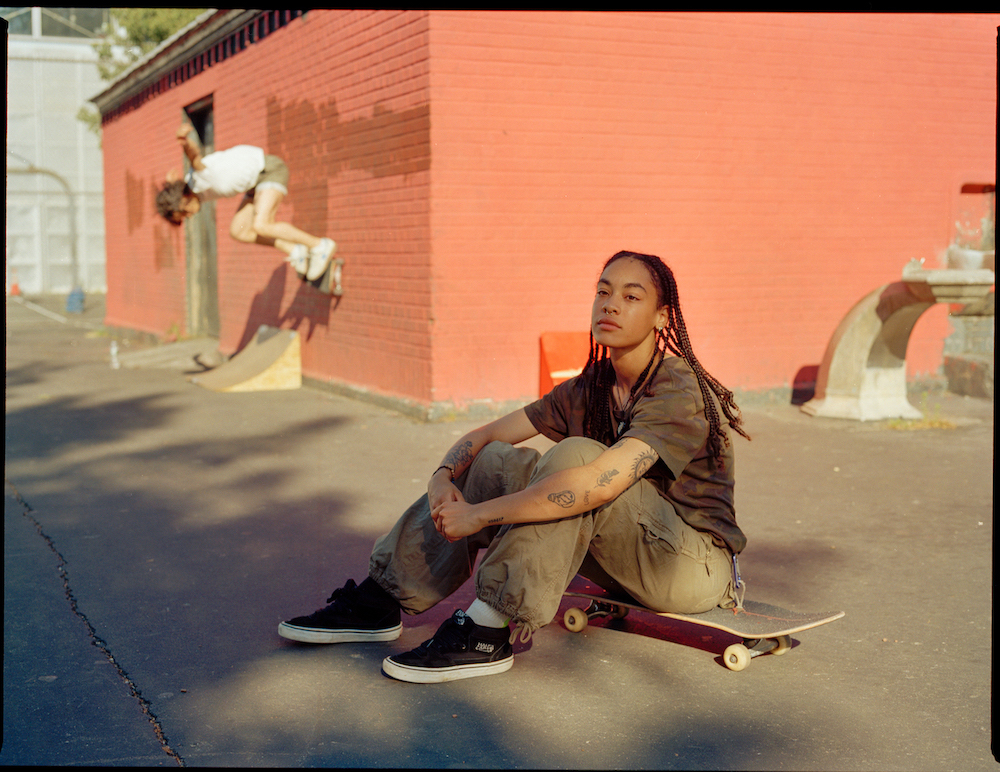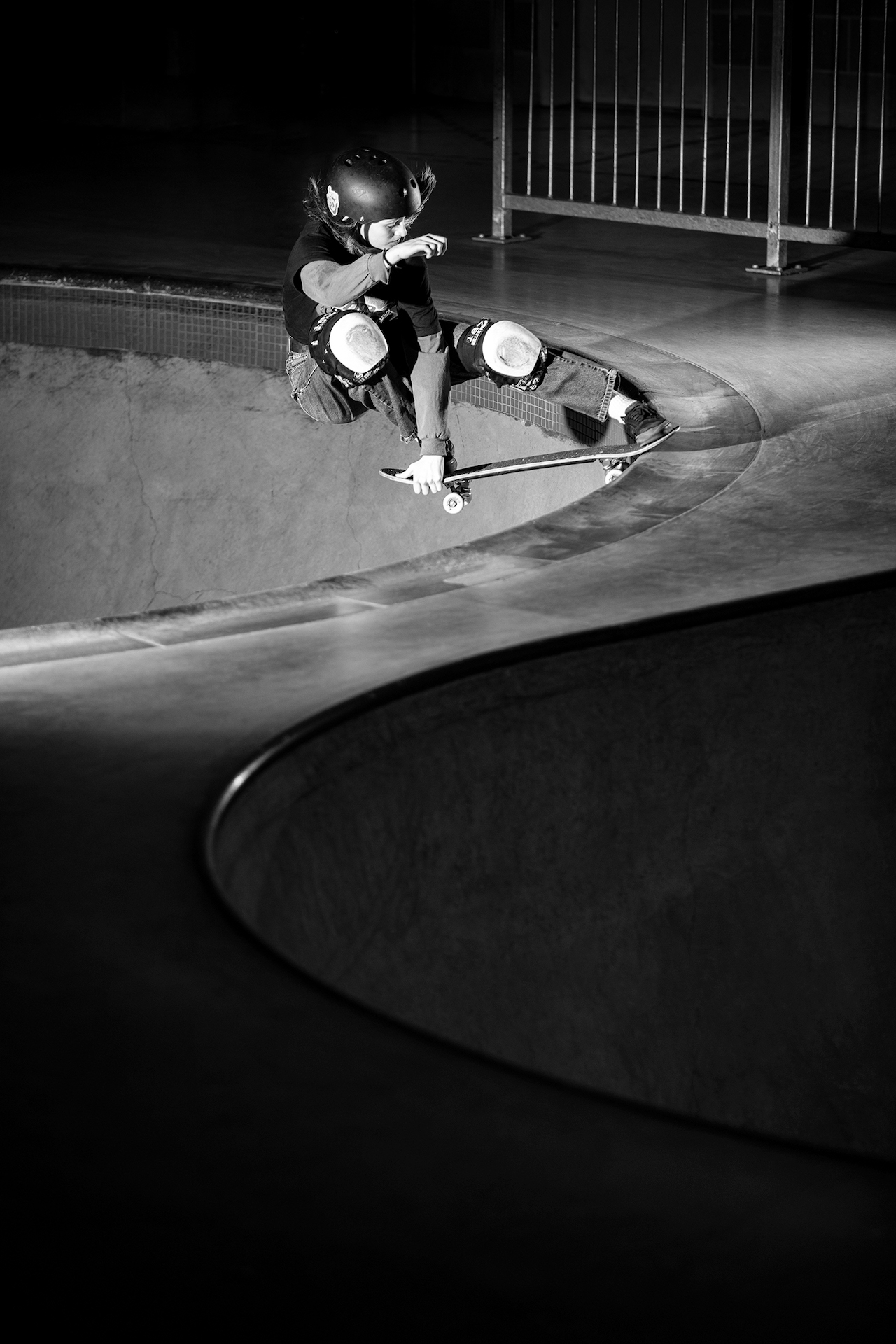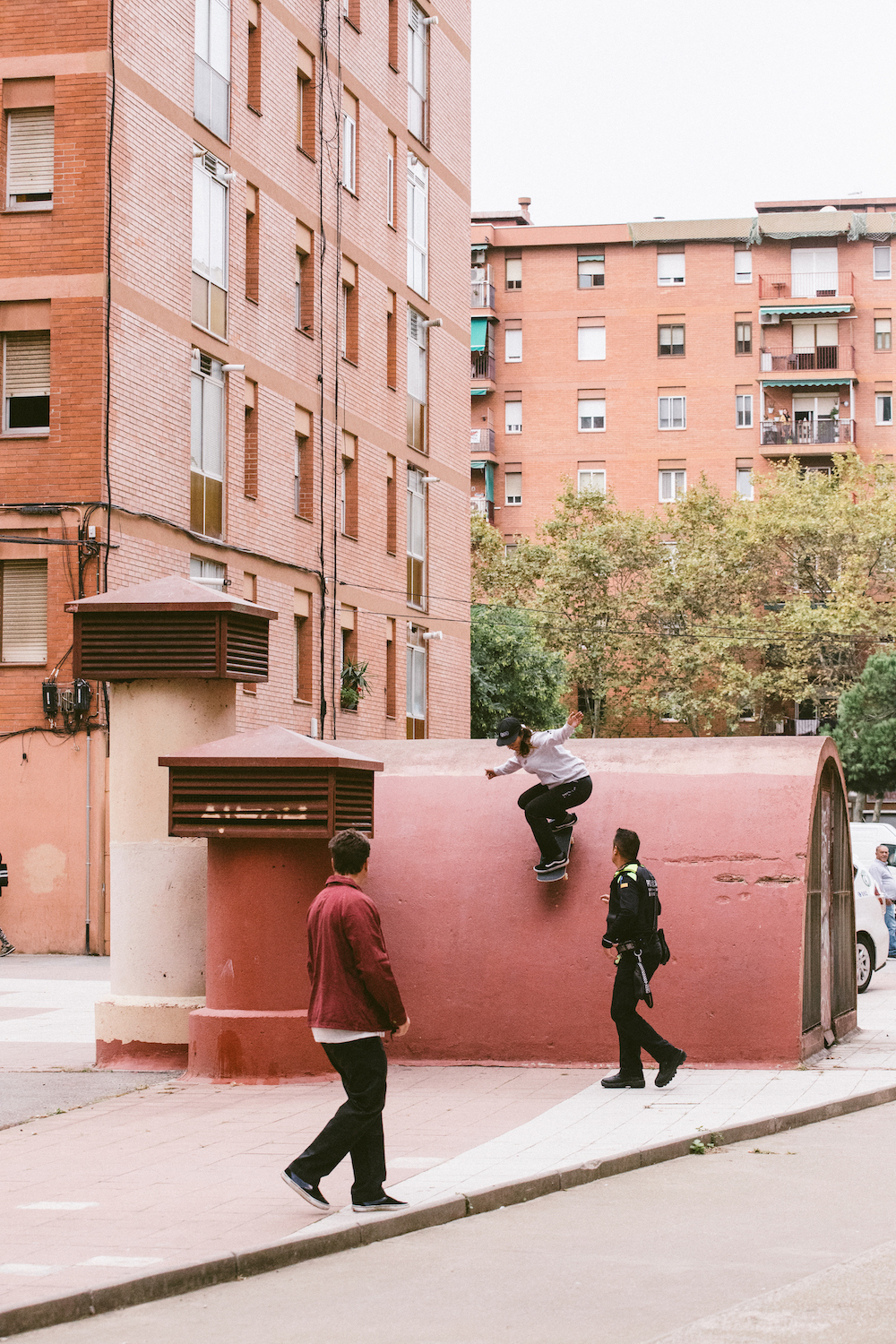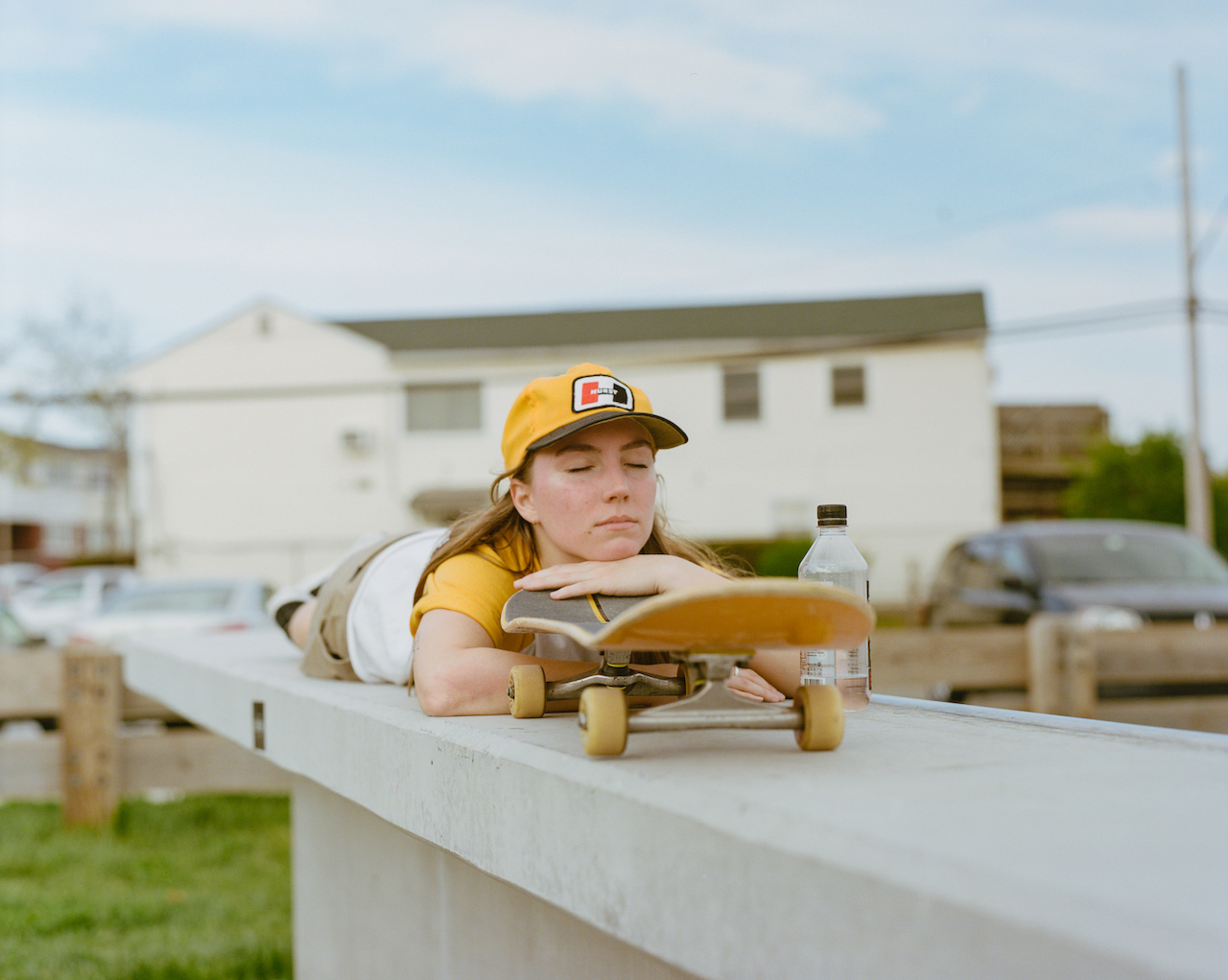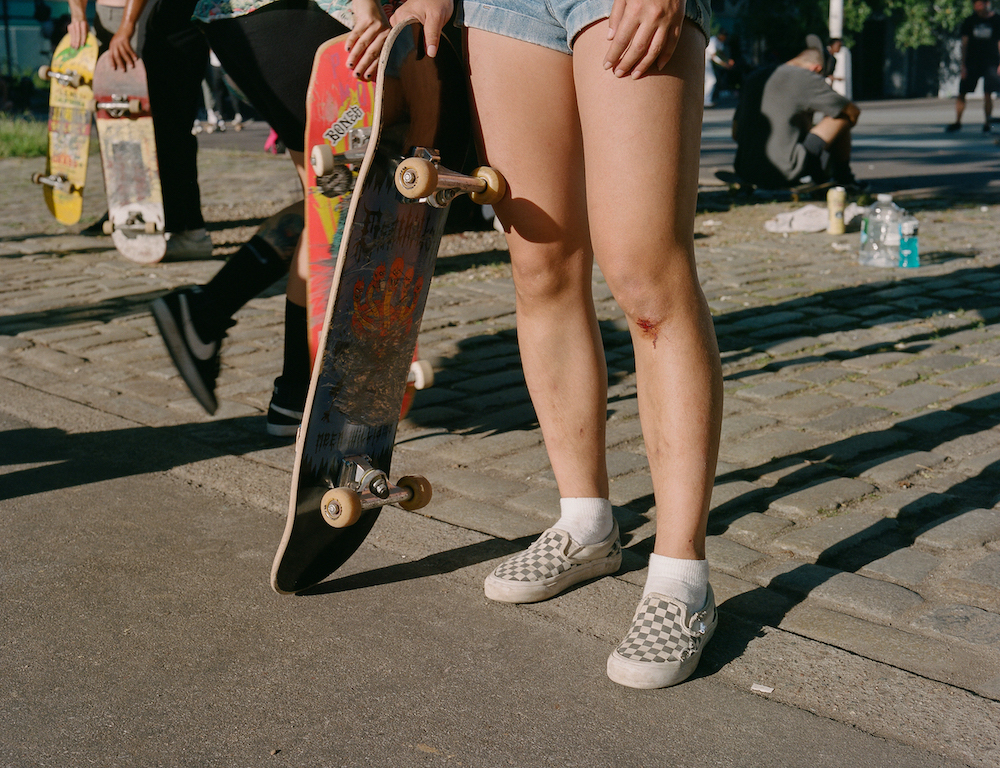From the series Everybody Skates © Lanna Apisukh.
Skateboarding and photography have always had an intrinsic connection. Now, as more women drop into the scene, a new wave of photographers are stepping up behind the lens
Since its inception in the 1950s, skateboarding has always had its roots in creativity, self expression and street culture. Originating in California – progressing from the days of riding planks when the surf was flat, or carving empty swimming pools – the subculture has spread worldwide, cultivating and inspiring countless strands of style and reference.
Throughout this history, the relationship between skaters and photographers has been central to its development, providing opportunities for exposure on both sides of the lens. When Patti McGee, the world’s first professional women’s skateboarder, appeared on the cover of Life Magazine in 1965, hints of women skateboarding became visible in the mass media. Although women have been skating since the its inception – Patti McGee, Z-Boys’ Peggy Oki, and Cara Beth Burnside, for example – the majority of images documenting the subculture have been made by men. Photographs by artists including Glen E. Friedman, Ed Templeton and J. Grant Brittain have become iconic, published by world-famous publications such as Thrasher and Skateboarder.
But these spaces tended to be male-dominated. Back in the 80s and 90s – on the sidelines of the street, the vert or the pool – there weren’t as many women photographers. The earliest shots photographed by women were taken by skateboarders themselves. Formed in the 1990s, by Brazilian photographers and skaters Liza Araujo and Luciana Ellington, Check It Out was one of the world’s first women-led skateboard magazines. Later, in 2003, filmmaker Lisa Whitaker created Girls Skate Network, a website dedicated to female skaters.
Now, female-led skate magazines are vital in providing opportunities for genuine representation and recognition. Contemporary titles like Skate Witches Zine and Dolores Magazine continue to act as tastemakers in the scene. As more women take up skateboarding, and the gender bias begins to close, behind the scenes, collectives of female skate photographers are gaining traction and recognition.
Jenna Selby [above, right] is a former skateboarder who has been capturing the rise of the female skating scene for two decades. “I was a sponsored skater, and part of our ‘skateboarding’ contract was to attend competitions, but I didn’t particularly enjoy that aspect, so the team manager asked if I’d take pictures of the team instead,” she says. “Things have definitely changed for the better and there are far more women and girls at skateparks now. I think we will now see more female skate photographers coming through.”
In 2016, Australian photographer Sarah Huston founded Yeah Girl, a platform that initially launched as an exhibition of female skateboarders shot by women. As a skate photographer herself, Huston discovered more women photographers through social media, and the platform has since grown into a global community that documents and celebrates women’s skateboarding and its creative undercurrents.
“As women’s skateboarding grows it’s important we maintain the DIY culture and continue to tell our story from the heart, offering an authentic perspective from a grassroots level,” says Huston. The handful of women at the forefront of skate photography over the past 10 years have been, like Selby and Huston, the skaters themselves who are ingrained in the community: Mimi Knoop, Louise Menke, Sarah Meurle, Norma Ibarra, Alana Paterson, Zorah Olivia, and Olga Aguilar, to name a few.
Norma Ibarra [above] is a recent success story in the contemporary skating scene. The Mexican photographer first picked up a skateboard in 2016, aged 31, and recognised that there were few people documenting her community. “I made a mission to shine the light on the non-traditional skate community around me.” she explains. “The first time I saw one of my photos published in the Skate Witches Zine I was hooked.”
In 2020, skateboarding made its debut at the summer Olympics, and since then Ibarra has noticed bigger brands reaching out to support women behind the lens. Still, there is still a long way to go. Ibarra tends to stick to collaborating with other women in her circle, where she feels safe and supported. “We have great mentors and leaders [in our community] paving the way for everyone,” she says.
The opportunities and appetite to shine the light on these lesser-seen communities in skating has grown. A great example of this is Lanna Apisukh, a skater and photographer, who since 2018 began capturing portraits of the community and culture surrounding her in New York [above]. “I noticed the explosive growth in women skating. It was super inspiring to see more females getting on boards but also queer, trans and non-binary folks too.” says Lanna. “There were more meetups and small organisations creating safe spaces for us to skate, so I started to bring my camera along to these events to document the great change I was seeing.”
These images were brought together into a series called Everybody Skate, which was made into a New York Times print spread last summer, gaining worldwide attention. It marked the achievement of a dream for Lanna as a photographer, but also for all grassroots content creators to realise it was possible.
From New York to Nairobi, Manchester to Malmo, if you look, you will find there is a growing and vast network of women photographers documenting grassroots communities and layers of a niche culture worthy of discovery. Women skate photographers have always existed – as long as women skaters have. But as an increasing number of women and girls around the world pick up both skateboards and cameras, there is more reason to pay attention than ever before.

